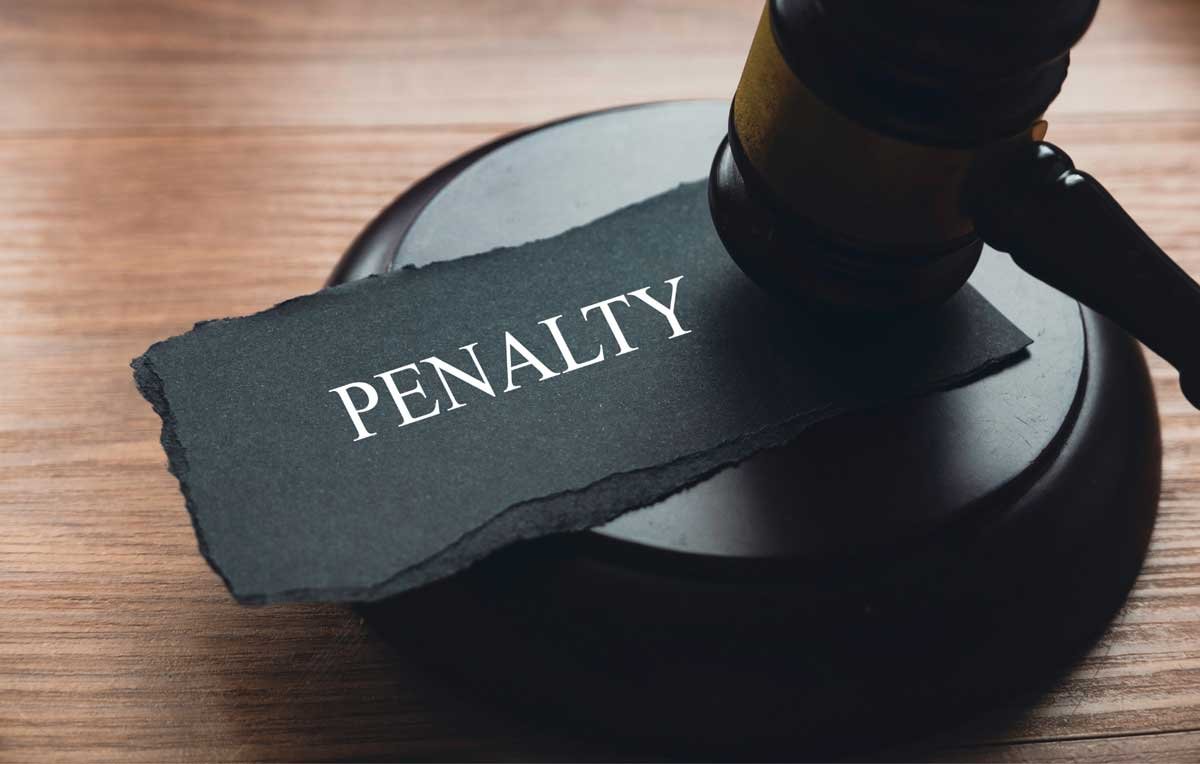Court Filing Process Server
Your Court Filing Process Server in Alameda California
No Gas Surcharges! We’re an eco-friendly company and only use electric vehicles.
Filing documents with the court is a part of the system, ensuring that all necessary paperwork is properly submitted and documented. It serves as a step in starting or responding to a lawsuit. It plays a significant role in moving a case forward.
In this article, we will delve into the details of court filing, including its significance, the steps, the procedure involved, and some useful suggestions to make the process smoother.
Who are Process Servers? Why are They Important?
Process servers are essential to the legal system as they ensure that legal documents reach the intended recipients. Their responsibility involves guaranteeing that everyone receives notification regarding any actions taken against them, thereby upholding transparency and justice.
- Responsibilities: Delivering important legal documents to individuals or organizations.
- Fair Notification: Ensuring that parties know of any actions being pursued against them.
- Legal Requirement: Many jurisdictions mandate notification for court proceedings.
- Impact on Validity: Proper service can have an impact on the validity of a proceeding.
- Professionalism: Process servers typically possess training in procedures and requirements.
- Conflict Avoidance: They help prevent confrontations by acting as a party.
- Documentation: Process servers provide proof of service, which is crucial for court proceedings.
We Are Open 7 Days A Week
How Does the Court Filing Process Work?

The court filing process involves submitting legal documents to initiate or respond to legal actions. It’s the method through which parties communicate their intentions, claims, defenses, and other vital information to the court and opposing parties.
| Step | Description |
| Initiation | Start of legal proceedings. |
| Document Submission | Papers should be presented to the court’s clerk. |
| Fees | Some filings may require associated fees. |
| Review | Clerks check for compliance with court rules. |
| Notification | Parties are informed about the filings. |
| Electronic Systems | Many courts have e-filing options available. |
| Timestamp | Documents receive a date and time of submission. |
What’s the Difference Between a Process Server and a Sheriff?
While both process servers and sheriffs can serve legal documents, their roles and responsibilities differ. A sheriff is a law enforcement officer, while a process server is a professional focused solely on serving legal documents.
| Aspect | Process Server | Sheriff |
| Duties | Deliver legal documents to individuals or entities. | Handle law enforcement duties. |
| Training | Specialized in serving techniques. | Broader law enforcement training. |
| Authority | Focused on document delivery. | Legal and arrest powers. |
| Flexibility | Might have more flexible hours for serving. | Operates based on law enforcement schedules. |
| Fee Structure | It is often dependent on the type of service and location. | Set by the county or jurisdiction, it might be standardized. |
| Choice | Available in most jurisdictions. | Some jurisdictions offer a choice between process server and sheriff. |
What Are the Legal Requirements for Serving Court Documents?
Serving court documents correctly is paramount for the legitimacy of any legal process. Each jurisdiction has specific rules that dictate how and when documents should be served to ensure the rights of all parties are upheld.
| Requirement | Description |
| Personal Service | Directly handing documents to the individual in question. |
| Substituted Service | Serving someone else at the defendant’s residence or workplace. |
| Posting | Displaying the notice in a public place or the defendant’s last known address. |
| Publication | Publishing the notice in a local newspaper. |
| Timing | Legal deadlines dictate when documents need to be served. |
| Proof of Service | A document or form showing that the papers were correctly served. |
| Special Considerations | Minors or mentally incapacitated individuals may have different rules for how they can be served. |
How to Ensure You’ve Chosen the Right Process Server?
Choosing the right process server can greatly impact the efficiency and legality of the service. Some crucial factors to consider are professionalism, experience, and a solid reputation.
- Credentials: Verify licenses or certifications.
- Experience: Look for servers with a track record in similar cases.
- Reputation: Check reviews or references from previous clients.
- Fees: Understand their fee structure and any potential extra costs.
- Service Range: Some servers might serve specific types of documents or within certain areas.
- Communication: The ability to maintain open lines of communication.
- Technology: Modern servers might use technology to provide real-time updates or proof of service.
Can a Process Server Serve Documents on Sundays or Holidays?
Whether a process server can serve documents on Sundays or holidays largely depends on local laws and regulations. It’s vital to know these rules to ensure proper service and prevent any legal complications.
- Local Laws: Some jurisdictions prohibit service on certain days.
- Respect for Traditions: Some areas might discourage serving on religious or cultural holidays.
- Efficiency: Serving on non-traditional days might increase the chance of finding the individual at home.
- Exceptions: Certain urgent legal matters might bypass regular restrictions.
- Proof of Service: Documentation should note the date and time of service.
- Potential Challenges: Serving on restricted days can lead to challenges in court.
- Consultation: When in doubt, consult with a legal expert or experienced server.
What Happens if Someone Avoids or Evades a Process Server?
Avoiding a process server can lead to complications for the evading party. Courts may allow alternative methods of delivery or even impose judgments on those who purposefully evade.
- Alternative Service: Courts might permit serving via publication or posting.
- Consequences: Avoidance might lead to default judgments against the evader.
- Legal Obligations: Deliberately evading service can have legal ramifications.
- Repeat Attempts: Servers typically make multiple attempts at different times and places.
- Evidence of Evasion: Servers might document efforts to prove intentional evasion.
- Involvement of Law Enforcement: In rare cases, the court may involve the police.
- Next Steps: If evasion is suspected, it’s important to consult with an attorney.
How Long Does a Process Server Have to Serve Papers?
The duration a process server has to serve papers varies based on jurisdiction and the nature of the legal action. It’s crucial to adhere to these timelines, as failure to do so may impact the progression of the case.
- Statutory Deadlines: Defined by local laws, dictating the maximum time allowed.
- Type of Case: Different cases, like civil or criminal, might have different timelines.
- Initiation Date: Countdown typically begins from the date of filing or issuance.
- Extensions: In some situations, courts may grant extensions for service.
- Consequences of Delay: Exceeding time limits may lead to case dismissals.
- Documentation: Always document attempts and successful service dates.
- Legal Counsel: Consult an attorney if unsure about specific timelines.
Are There Digital Alternatives to Traditional Process Serving?
With the advancement of technology, some jurisdictions have started to embrace digital methods of serving. This can offer faster and more efficient ways to notify individuals, but it’s not universally accepted.
| Alternative | Description |
| E-service | Delivery of documents through email or dedicated platforms. |
| Social Media | Some courts have allowed for service through platforms like Facebook. |
| Legal Restrictions | Not all jurisdictions or types of cases allow for digital serving. |
| Proof and Verification | Essential to ensure that the recipient actually viewed or received the documents. |
| Benefits | Offers benefits like speed, convenience, and potential cost savings. |
| Limitations | There might be concerns related to privacy, authenticity, and possible technical barriers. |
| Hybrid Solutions | Combining traditional and digital methods to optimize the process. |
What Are the Penalties for Impersonating a Process Server?

Impersonating a process server is a serious offense, as it undermines the legal system and can deceive individuals into taking or not taking specific actions based on false pretenses.
- Criminal Charges: Impersonation can lead to charges like fraud or identity theft.
- Legal Consequences: False service can nullify court actions based on it.
- Restitution: Offenders might be ordered to compensate victims.
- Loss of License: If a licensed server is found guilty, they could lose their professional license.
- Civil Lawsuits: Victims can potentially sue for damages or distress.
- Report to Authorities: Suspected impersonation should be reported immediately.
- Public Record: Convictions often become part of the public record, affecting future employability.
Why Choose Us?

Aceso Courier, rooted in an unwavering dedication to service excellence, is not just any courier service. Our company stands as a beacon of commitment, offering top-tier delivery solutions while providing invaluable opportunities to veterans and individuals with disabilities.
With a thorough understanding of the nuances of court filings and an undying commitment to reliability, Aceso Courier seamlessly bridges the gap between logistical demands and a noble cause.
- Empowering the Resilient: Actively provides opportunities for veterans and those with disabilities, aiding their integration into the world of logistics.
- Exceptional Delivery Solutions: Ensures businesses, medical facilities, and legal entities receive essential supplies promptly.
- Our Pledge: Guarantees the engagement of passionate and dedicated drivers over mere “clock-punchers,” ensuring superior service quality.
- Eco-Conscious Operations: Advocates for environmental responsibility by encouraging drivers to opt for electric or hybrid vehicles.
- State-Recognized & HIPAA-Compliant: Membership with the National Association of Professional Process Servers and adherence to HIPAA guidelines signify professional excellence.
- Diverse Services: From medical deliveries using HIPAA-compliant OnTime360 software to licensed process serving (License #PS1717), Aceso offers a wide range of services tailored to the needs of the clients.
- Personal Touch: As reflected by client testimonials, Aceso goes beyond basic service to offer personalized, compassionate support to clients during challenging times.
Choose Aceso Courier for a service that transcends mere delivery, one that symbolizes commitment, professionalism, and a heartfelt mission to uplift the community.
Contact the team to schedule process service in Alameda, Mountain View, Santa Clara, and San Mateo with Aceso Courier!
Frequently Asked Questions
What’s the main role of a process server?
They deliver legal documents to specific individuals or entities.
Can court documents be served electronically?
Some jurisdictions allow digital service, but it varies based on local laws.
Are sheriffs and process servers the same?
No, sheriffs handle law enforcement, while process servers focus on document delivery.
Temporarily Closed Until Further Notice
Contact Us
If you have questions about our services, routes, or creating an Aceso team for your business, please reach out to us and include as much information as possible. We also suggest calling us directly for quotes and the most detailed service explanations possible. We can’t wait to hear from you.
Pricing
All pricing is done on a customer-to-customer basis, taking many factors into consideration. For single same-day deliveries, you can contact us to arrange your delivery and get a quote.
